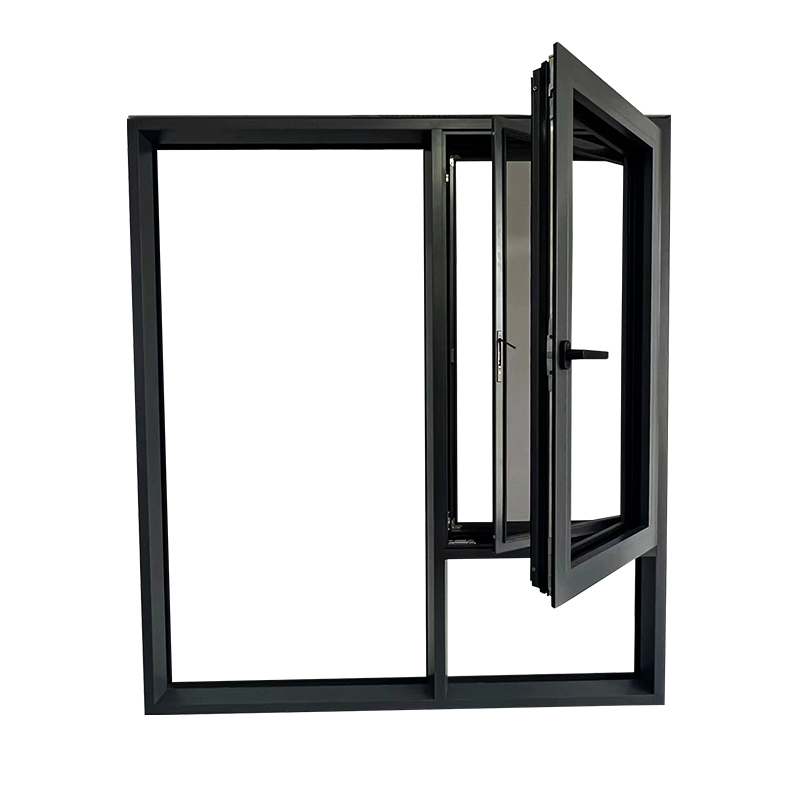Send inquiry
Aluminum storm windows are designed to provide significant protection against extreme weather conditions. Here’s how they perform in various aspects of weather resistance:
Wind Resistance:
Strength and Durability: Aluminum storm windows are strong and can withstand high wind pressures without deforming or breaking. Their robust construction helps prevent wind damage to the underlying windows.
Seal Integrity: High-quality aluminum storm windows are designed with tight seals to prevent wind infiltration, which can help maintain indoor comfort and protect the interior of the home.
Impact Resistance:
Protection Against Debris: Aluminum frames, combined with sturdy glazing options (such as laminated or tempered glass), provide a strong barrier against flying debris during storms or hurricanes.

Structural Integrity: The inherent strength of aluminum helps the storm windows maintain their structural integrity even when subjected to impacts, reducing the risk of breakage.
Water Resistance:
Preventing Water Infiltration: Aluminum storm windows are designed with effective water barriers and drainage systems to prevent water from penetrating the window assembly during heavy rain or storms.
Corrosion Resistance: Aluminum's natural resistance to rust and corrosion ensures that the frames remain intact and functional even in wet conditions, unlike some other materials that may deteriorate over time.
Thermal Performance:
Temperature Extremes: Aluminum storm windows can perform well in both hot and cold climates. When equipped with thermal breaks and appropriate glazing options, they can help maintain indoor temperatures and reduce energy consumption.
Condensation Prevention: Properly designed aluminum storm windows can help reduce condensation by creating an additional barrier between the interior and exterior environments, especially in colder weather.
UV Protection:
Glazing Options: Many aluminum storm windows are available with glazing options that include Low-E (low-emissivity) coatings, which help block harmful UV rays. This protects the interior furnishings from fading and can contribute to overall thermal comfort.
Noise Reduction:
Sound Insulation: Aluminum storm windows, especially when combined with appropriate glazing, can help reduce noise infiltration from outside, providing a quieter indoor environment during storms.
Performance in Specific Extreme Weather Conditions:
Hurricanes and Tornadoes:
Hurricane-Impact Rated: Some aluminum storm windows are specifically designed and rated to withstand hurricane-force winds and impact from debris. These windows are tested to meet stringent building codes and standards for hurricane-prone areas.
Reinforced Construction: In areas prone to tornadoes or hurricanes, aluminum storm windows often feature reinforced frames and heavy-duty glazing to provide maximum protection.
Heavy Rain and Flooding:
Waterproof Seals: Aluminum storm windows are equipped with high-quality seals and weatherstripping to prevent water leakage during heavy rain. Proper installation ensures that water is directed away from the window structure.
Durability in Wet Conditions: The corrosion-resistant nature of aluminum ensures that the storm windows remain functional and intact even after prolonged exposure to water.
Snow and Ice:
Thermal Insulation: Aluminum storm windows with thermal breaks and insulated glazing can help maintain indoor warmth during cold weather, reducing the risk of ice formation on the window surfaces.
Structural Stability: The strength of aluminum ensures that the windows remain stable and secure under the weight of accumulated snow or ice.
Aluminum storm windows offer excellent protection against extreme weather conditions due to their strength, durability, and design features. They provide a robust barrier against high winds, flying debris, heavy rain, and temperature extremes, helping to protect the home and enhance indoor comfort. Additionally, aluminum’s resistance to corrosion and low maintenance requirements make it a practical and long-lasting choice for storm windows in a variety of climates.